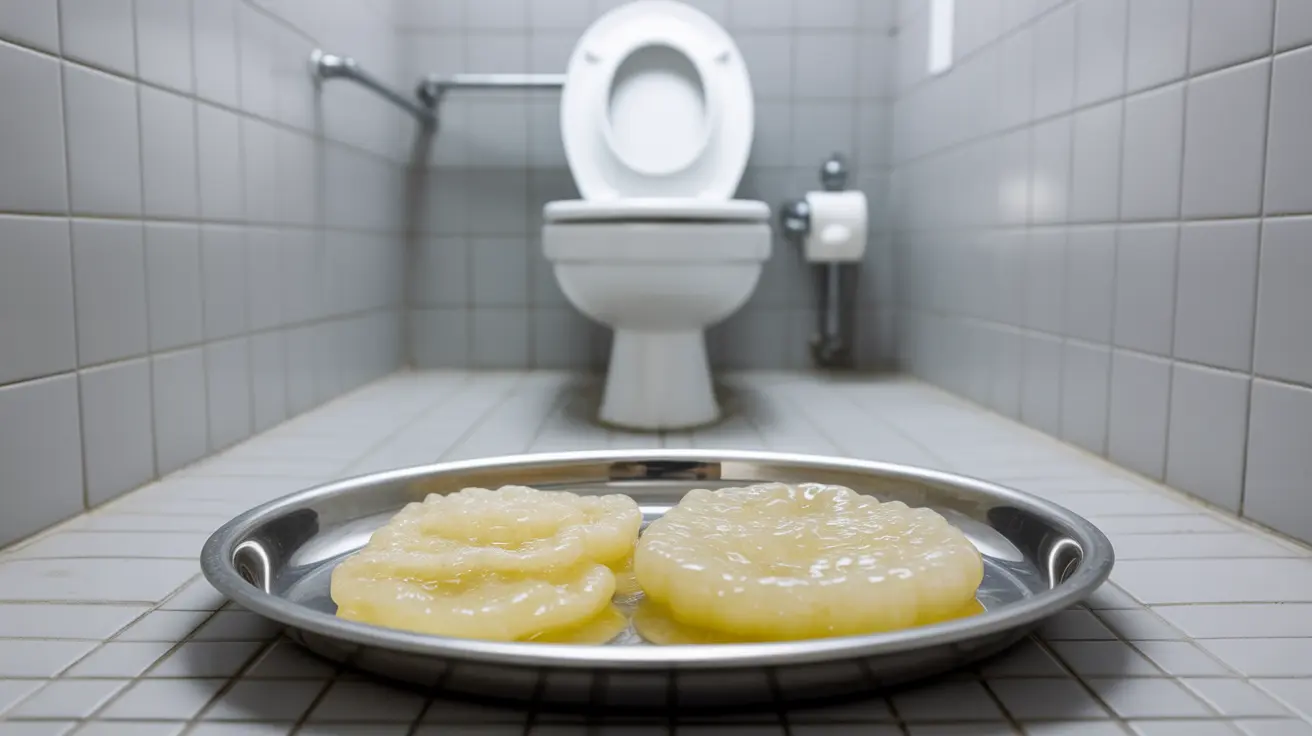Oily stool, also known medically as steatorrhea, occurs when there's excess fat in your bowel movements. This condition can be both concerning and uncomfortable, often indicating that your body isn't properly absorbing fats from your diet. Understanding the causes, symptoms, and treatment options is crucial for maintaining digestive health and preventing potential complications.
While occasional changes in stool appearance are normal, persistent oily stools warrant medical attention as they may signal underlying health conditions that require proper diagnosis and treatment. This comprehensive guide will help you understand when to be concerned and what steps to take.
Identifying Oily Stool Symptoms
Oily stools have several distinctive characteristics that set them apart from normal bowel movements:
- Floating stools that are difficult to flush
- Pale or clay-colored appearance
- Foul-smelling bowel movements
- Greasy or oily film in the toilet water
- Bulky or unusually large stools
- Frequent bowel movements
Common Causes of Oily Stool
Digestive System Disorders
Several conditions affecting the digestive system can lead to oily stools:
- Celiac disease
- Chronic pancreatitis
- Cystic fibrosis
- Small intestine bacterial overgrowth (SIBO)
- Inflammatory bowel disease (IBD)
Medication and Dietary Factors
Sometimes, oily stools can result from lifestyle and medication-related factors:
- Weight loss medications
- Fish oil supplements
- High-fat diets
- Certain antibiotics
- Food intolerances
Diagnostic Process
Healthcare providers typically use several methods to diagnose the underlying cause of oily stools:
- Stool analysis tests
- Blood tests for nutrient levels
- Imaging studies of the digestive system
- Endoscopic procedures when necessary
- Genetic testing in some cases
Treatment Approaches
Medical Interventions
Treatment options vary depending on the underlying cause:
- Enzyme replacement therapy
- Medications to control inflammation
- Antibiotics for bacterial overgrowth
- Treatment for specific underlying conditions
Dietary Modifications
Dietary changes often play a crucial role in managing oily stools:
- Reducing fat intake
- Adding fiber-rich foods
- Avoiding trigger foods
- Including easily digestible proteins
- Staying properly hydrated
Prevention and Management
Several lifestyle modifications can help prevent or manage oily stools:
- Regular meal timing
- Balanced diet maintenance
- Stress management
- Regular exercise
- Proper hydration
When to Seek Medical Help
Consult a healthcare provider if you experience:
- Persistent oily stools lasting more than two weeks
- Unexplained weight loss
- Severe abdominal pain
- Signs of dehydration
- Fever or other concerning symptoms
Frequently Asked Questions
- What are the main causes and symptoms of oily stool (steatorrhea)?
Oily stool primarily results from malabsorption of fats and can be caused by pancreatic disorders, celiac disease, or other digestive conditions. Main symptoms include floating, greasy-looking stools, foul odor, and difficulty flushing.
- How is oily stool diagnosed and what tests should I expect at the doctor?
Diagnosis typically involves stool analysis, blood tests, and possibly imaging studies. Your doctor may also perform endoscopic procedures or order genetic testing depending on suspected causes.
- What underlying health conditions can cause frequent oily or greasy stools?
Common underlying conditions include chronic pancreatitis, celiac disease, cystic fibrosis, inflammatory bowel disease, and small intestine bacterial overgrowth (SIBO).
- Are there home remedies or foods to avoid for oily stool, and when should I seek medical help?
Reducing fat intake, avoiding trigger foods, and maintaining a balanced diet can help. Seek medical attention if symptoms persist for more than two weeks or are accompanied by severe pain or weight loss.
- Can oily stool lead to vitamin deficiencies and other health problems if left untreated?
Yes, untreated oily stools can lead to deficiencies in fat-soluble vitamins (A, D, E, and K) and essential fatty acids, potentially causing various health complications if not addressed properly.




